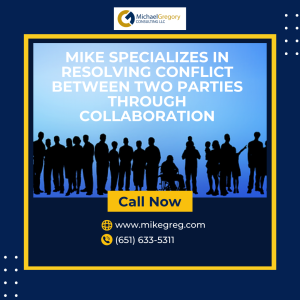Negotiating valuation disputes with the IRS can demand expertise. For the best outcomes, locate a seasoned expert with qualifications, a solid reputation, and communication abilities. It can help you mitigate risks, maximize resources, and achieve favorable outcomes with strategic guidance through complex IRS procedures.
Dealing with the IRS can be daunting when disputes related to business valuations arise. Such conflicts often require specialized expertise to resolve efficiently. Let’s explore the importance of seeking experienced professionals and offer guidance on finding help!
What is the Importance of Expertise?
Business valuation disputes with the IRS can arise for various reasons, including discrepancies in valuation methods or disagreements over asset values. Resolving these issues demands in-depth knowledge of tax laws, valuation principles, and IRS procedures.

Expertise in Action:
An experienced professional can assess the situation. This helps identify potential areas of contention and develop a strategic approach to effectively address IRS concerns. The expert can provide invaluable insights into complex valuation methodologies. This ensures accurate representation and compliance with regulatory requirements.
Navigating IRS Procedures:
It requires a thorough understanding of the tax code and regulatory framework. An experienced professional can guide your business through the process, helping you respond to IRS inquiries. You can submit relevant documentation and communicate effectively with IRS officials.
Mitigating Risks:
Business valuation disputes can have significant financial implications, including potential penalties, interest, and legal expenses. Engaging with experienced professionals helps your business mitigate these risks, reduce liabilities, and avoid costly mistakes.
Maximizing Resources:
Resolving IRS disputes requires time, effort, and resources. A competent professional’s experience can help your company expedite the procedure. It allows you to focus on core operations while ensuring compliance with IRS requirements.
How Finding the Right Person Helps:
When seeking assistance with IRS business valuation disputes, find the right professionals with relevant expertise and a proven track record of success. Take into account the following elements:
Experience: Seek a specialist with a great deal of experience managing business valuations and IRS disputes. The expert should understand tax laws, valuation methodologies, and IRS procedures.
Credentials: Check the professional’s credentials and qualifications, including valuation certificates (such as CVA and/or ASA). These credentials demonstrate the professional’s expertise and credibility in the field.

Reputation: Examine case studies, references, and customer endorsements to learn more about the expert’s reputation. A trustworthy professional has a track record of meeting deadlines and offering top-notch customer support.
Communication: Select experts who will keep you updated with clarity and effectiveness at every stage of the process and can communicate. Effective communication is essential for understanding the complexities of the dispute and making informed decisions.
Cost: Consider the expenses associated with hiring experts and verify that they align with your financial plan and the possible advantages of settling the conflict.
Conclusion:
Navigating the IRS business valuation and disputes requires expertise, strategy, and effective communication. By engaging with an experienced professional, your business can mitigate risks, maximize resources, and achieve favorable outcomes. With the best support, your business can deal with IRS disputes.
About the Author:
The article is for the Michael Gregory Consulting firm, a reliable source for finding an experienced professional to resolve conflicts with the IRS business valuations or other issues. Contact the firm at (651) 633-5311 to get help when negotiating with the IRS!















